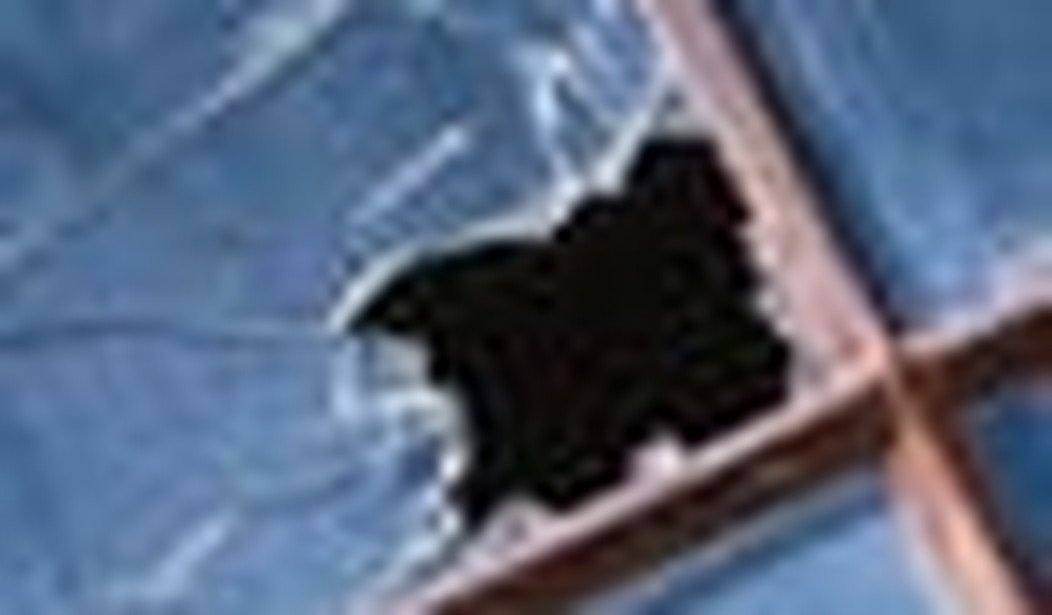In 1982, James Q. Wilson and George Kelling published an article in The Atlantic called “Broken Windows.” The article argued that failing to stop small crimes and acts of vandalism, such as broken windows, emboldened wrongdoers and led to bigger crimes and unlawful behavior. Criminals realized that if small crimes were ignored, larger ones were likely to be as well.
Wilson and Kelling argued that by acting to prevent the smaller crimes, enforcement agencies would help stem larger crime. A few years later, New York City, in consultation with Kelling, began to implement a crime enforcement approach based on this theory. The approach had many critics — especially among liberal circles — who argued that such enforcement was disruptive to communities and too discriminatory to minorities because it unfairly singled out individuals when “everybody was doing it.”
I moved to New York City 24 years ago, prior to the change in police tactics, when the city more closely resembled The Warriors or Escape from New York than Sex in the City. I was always on alert for the potential to be mugged, and amazed at the apparent lawlessness of the streets and subways. I had no doubts that stopping petty crime would have an immediate and positive impact on my life.
Eventually the new police enforcement techniques led to a tremendous reduction in crime, which many locals had considered unstoppable. All neighborhoods had an opportunity for revival and economic growth that had been unthinkable just a few years earlier.
The run-up to the financial crisis had its share of vandalism and broken windows.
A speculative real estate bubble grew rapidly, rating agencies appeared to be unable to distinguish between good or bad mortgage-backed securities or collateralized debt obligations, and certain investment banks seemed to treat the credit default swap market like the Wild West. Some of these issues were apparent prior to the crisis in 2008, and many more have been uncovered since that time. The previous administration seemed determined to deny the existence of any problems prior to the collapse of the markets — and even as the crisis was unfolding.
In 2007 and 2008, Treasury Secretary Paulson and others asserted, on a number of occasions, that “the sub-prime problem was contained.” The current administration seems determined to “move on” and put the crisis behind us, despite many lingering questions about how the crisis happened and who was responsible. While many citizens in the country lacked a clear understanding of the details of the CDO or mortgage markets, they understood the unfairness of the bank bailouts and seethed at the billions in bonuses paid by the banks who had been saved by taxpayer money just a year earlier. But despite the occasional tough talk, the administration and Congress behaved indifferently.
I worked in the mortgage-backed security and CDO markets for twenty years. My prior company and job were blown up by CDOs, and I’ve felt a tremendous degree of guilt for my role in the crisis. In an effort to understand my mistakes, I devoted much of my newfound free time to researching and analyzing the CDO and mortgage markets. My goal was to expose practices that contributed to the crisis in the hopes of potentially identifying some wrongdoers and deterring future bad behavior.
Over the past several months, in posts at the financial website NakedCapitalism.com and in various meetings and consultations, I’ve questioned the government’s actions in bailing out AIG, Goldman’s apparent predatory behavior in the CDO market, and the questionable behavior of large institutions like TCW and BlackRock (links here, here, here, here, and here). But beyond a small group of like-minded journalists and bloggers, few people seemed to care or make the connection between CDOs and the financial crisis.
Frustratingly, despite massive losses to banks and investors, a $700 billion bailout, skyrocketing job losses, and related damage to the economy, current and prior administrations seemed unwilling to hold anyone accountable for the problems. In various hearings before Congress and the Financial Crisis Inquiry Commission, leaders of banks and other agencies all claimed that the crisis was unforeseeable and there was nothing they could do to stop it. Even worse, many of the individuals who contributed to or profited from the collapse seemed to be in positions of power rather than being held accountable for their actions. The bank bailouts followed by giant, taxpayer-subsidized bank bonuses sent a message that not only was vandalism being ignored, but that robberies were being encouraged and rewarded.
Over the past two weeks, as various experts and journalists accumulated more evidence of questionable financial activities and transactions, and the general population’s anger at the bailouts and the lingering recession grew, the tide finally appeared to shift. On April 16, the Securities and Exchange Commission announced an action against Goldman Sachs for fraud in the sale and marketing of one of its CDOs. Shortly after, the Senate woke up from its slumber and hauled executives from Goldman into a hearing to castigate them for the unethical behavior in the CDO market. Finally, the Wall Street Journal reported that the Department of Justice was investigating possible criminal actions against Goldman for its mortgage trading activities.
Goldman Sachs, with its many connections to government officials at the Treasury and the Federal Reserve, had previously seemed to be, if not above, than at least closely tied to the law in the world of securities. Now that it is under wider scrutiny, many of Goldman’s practices are being called into question. Goldman’s (and other banks’) damaging practices in the mortgage and CDO markets are finally receiving harsh criticism.
Based on the reaction in the press and across the country, it appears that many people are gratified that the enforcement agencies are finally directing their attention to the scene of the crime. Surprisingly, certain right-leaning representatives, including the New York Post and Mayor Bloomberg, argued that the SEC actions and new proposed financial regulations were wrong. They argued that by seeking to enforce the securities laws against Goldman or by imposing stricter financial regulations, the SEC or Congress would damage Wall Street and the local economy.
I’m sure the drug dealers and hostile squeegee men of twenty years ago argued that by enforcing the laws and cleaning up the streets, the police were harming their economy as well. But failing to pursue violations and unethical behavior in the financial markets is like failing to fix the broken windows. It emboldens the vandals to pursue similar or worse activity in the future. The combined actions of the SEC, Senate, and DOJ are first steps in enforcing the laws against unethical behavior and repairing the broken windows in the financial markets. If the government agencies continue to bring actions and attempt to enforce laws that had previously been ignored, we are likely to find that the Street gets cleaner and future, greater crimes and crises are prevented.









Join the conversation as a VIP Member